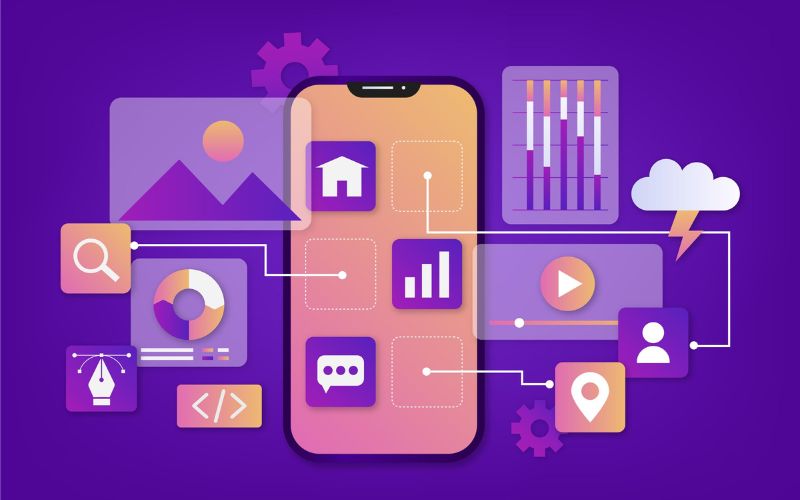In today’s highly competitive app market, having a well-structured mobile app business plan is crucial for the success of your app. This blueprint not only helps in securing investments but also outlines clear objectives, market strategies, and financial projections. By setting the foundation with a detailed business plan, you’re more likely to turn your app idea into a profitable reality.
Why You Need a Mobile App Business Plan
Creating a mobile app is more than just coding—it’s about understanding the market, targeting the right audience, and ensuring long-term sustainability. A comprehensive mobile app business plan serves as a roadmap for your development journey, highlighting key milestones from concept to launch and beyond. Without a solid plan, even the most innovative app ideas can fail to gain traction.
1. Market Research: Understanding Your Audience
One of the first steps in developing a mobile app business plan is thorough market research. This helps you understand who your target audience is, what their pain points are, and how your app can solve their problems. Analyze your competitors to identify gaps in the market. By leveraging these insights, you can create a product that not only meets user expectations but also stands out from the competition.
2. Define Your App’s Unique Value Proposition (UVP)
Your app’s unique value proposition is what sets it apart from the hundreds of thousands of apps already available. Whether it’s a game-changing feature or a unique user experience, clearly define this in your mobile app business plan. A well-crafted UVP increases the chances of attracting early users and retaining them over time.
3. Monetization Strategies: How Will You Make Money?
Your mobile app business plan should also include a clear monetization strategy. Will you offer in-app purchases, subscription models, or paid downloads? Understanding your revenue streams before you launch will help you position your app effectively in the marketplace. For example, if your app is free, you’ll need to incorporate strategies like ads or premium features to generate income.
4. Technical Development and Resources
A solid mobile app business plan also accounts for the technical aspects of development. This includes the technology stack, platforms (iOS, Android, or both), and the resources needed to bring your app to life. Whether you choose to hire an in-house team or outsource the development, having a detailed technical plan ensures a smooth development process and helps avoid costly delays.
5. Marketing and User Acquisition
Marketing your app is just as important as building it. Your mobile app business plan should outline a robust marketing strategy that includes digital advertising, social media campaigns, and influencer partnerships. Organic growth is great, but paid user acquisition campaigns can give your app the initial push it needs to gain visibility in app stores.
The Importance of Financial Projections
No business plan is complete without a solid financial projection. This section should include your app development costs, marketing budget, and expected revenues. A detailed financial forecast not only helps in managing your cash flow but also proves to potential investors that you’ve thought through the financial viability of your project.
Common Pitfalls to Avoid
Many app startups make the mistake of skipping the business planning stage, focusing solely on development. This can lead to costly mistakes, including launching an app without knowing if there’s demand for it. Another pitfall is underestimating the budget required for marketing and user acquisition. Make sure your mobile app business plan is realistic and takes into account all potential expenses.
6. Scalability and Future Growth
When developing your app, think beyond the initial launch. A successful mobile app business plan should consider scalability—how will you grow your app’s user base? Will you expand into new markets or introduce additional features over time? Planning for future growth ensures your app remains relevant and profitable in the long run.
Conclusion: A Roadmap to Success
A well-crafted mobile app business plan is essential to ensure your app’s success in the competitive mobile market. From understanding your audience and defining your value proposition to outlining monetization strategies and financial projections, a detailed plan acts as your roadmap. By addressing every aspect of your app’s lifecycle, you position your business for sustainable growth and success.
For more interesting blogs click here.




